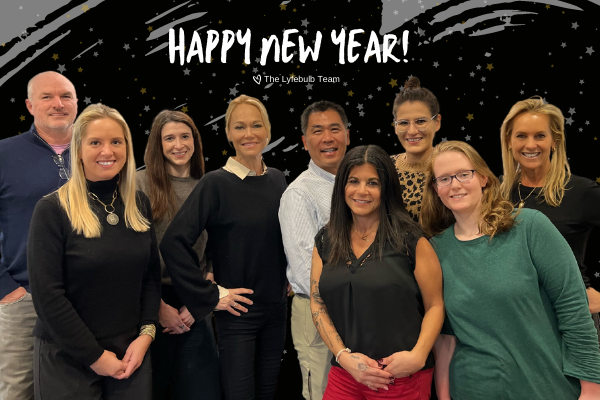Reflections on 2021
By Karin Hehenberger, MD, PhD

| 2021 has been a blur of a year for many. Some say it feels like an extension of 2020, but I tend to disagree: It is amazing how far we have come from last year when we were in the beginning of this global pandemic, without any vaccines and without any real knowledge about how the virus spreads, why some get so sick, why some have no symptoms and why some develop so-called “long COVID”… In the second year of COVID, we know much more, this virus spreads through droplets, aerosol driven in fact, and is highly contagious in indoor settings when people are at close proximity to each other. It seems clear that underlying issues such as diabetes, obesity and age are big drivers of morbidity and mortality, while younger individuals and even infants are highly spared. Outdoor settings and surfaces are less scary now than 20 months ago, when I remember putting on gloves to fill up my car with gas! As a person living with two transplants, I am chronically immune suppressed and have been extra careful, but interestingly, this category of people has not fared as poorly as those discussed above. We have also been less affected mentally than those who are not used to having to accommodate due to disease. In fact, one of the biggest “side effects” of COVID has been mental-health issues in the young and healthy, those who had to go to school remotely and cease social activities that are so important to school-age children and young adults. Similarly, our company has gone through tremendous changes while keeping to our core mission and staying true to our cause to help people affected by chronic disease. 2021 is the year we truly became a digital-health company and launched our second digital-community platform. Our Lyfebulb network can now connect across two disease areas in a safe and nimble way, through TransplantLyfe and IBDLyfe, and this is just the beginning. Our goal is to launch at least two new platforms for disease communities each year. We believe connectivity, education and innovation drive empowerment in people with chronic disease and, therefore, we are investing in tools to promote those goals. In November, we launched a virtual patient-education series in collaboration with Columbia Presbyterian in organ-transplant education. You can find details on the dates, times and topics of those webinars on our TransplantLyfe.com website. Our proprietary network of patients and care partners is now well organized into a database that, together with our patient-facing community platforms, forms a basis for extensive research into quality-of-life issues that often are dismissed in clinical trials but are so highly valued by people living with any kind of disease. We are already in the midst of conducting our very first academic study together with Columbia University hospital to study, and hopefully validate, the impact of community connectivity on health outcomes in kidney transplant patients. We have plans for many more research studies ahead. |

While we are continuing to evolve into this digital-health space, we remain committed to our core of innovation sourcing and patient workshops to find solutions to improve quality of life. We conducted four innovation challenges, held eight workshops, and ran over fifty deep interviews with patients across eight therapeutic areas in 2021, learning a lot about patient and care-partner journeys, hurdles and opportunities. We then synthesized these insights into reports and provided them to our industry partners whom we entrust with taking these novel user-driven ideas and developing new products for the marketplace. A novelty for 2021 was that some of these reports were generated to benefit and grow Lyfebulb’s own digital platforms.
We are also working hard on the people side, and we recently hired a Chief Technology Officer who is busy building a strong team of engineers and user-experience experts. This team will leverage the extensive knowledge we have accumulated from our communities to develop novel technology to be launched by Lyfebulb.
So, as we finish up 2021, we are now mostly vaccinated (or even boosted), there are anti-viral cocktails out there to treat this disease, and schools and workplaces have found a rhythm that works for most. COVID-19 is here to stay, but hopefully never again in the manner of February of 2020.
At Lyfebulb, we are excited about our role as a mission-driven, digital-healthcare company focused on patient empowerment and look forward to 2022, a year focused on fueling our engines and accelerating our growth to improve patient and care-partner outcomes globally!
In conclusion, the team at Lyfebulb wishes everyone affected by chronic disease a wonderful New Year. It is our commitment each day to work hard and intelligently toward the goal that no one should feel alone. Instead, we strive for an educated and empowered community!

